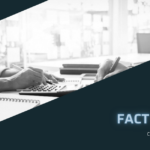With a defined contribution pension scheme, you build up a pot of money that you can then use to provide an income in retirement. Unlike defined benefit schemes, which promise a specific income, the income you might get from a defined contribution scheme depends on factors including the amount you pay in, the fund’s investment performance and the choices you make at retirement.
Defined contribution pensions build up a pension pot using your contributions and your employer’s contributions (if applicable), plus investment returns and tax relief. If you’re a member of the scheme through your workplace, then your employer usually deducts your contributions from your salary before it is taxed.
The fund is usually invested in stocks and shares, along with other investments, with the aim of growing it over the years before you retire. You can usually choose from a range of funds to invest in. Remember, though, that the value of investments can go up or down.
The size of your pension pot and amount of income you receive when you retire will depend on:
- How much you pay into your pot
- How long you save for
- How much your employer pays in (if a workplace pension)
- How well your investments have performed
- What charges have been taken out of your pot by your pension provider
- How much you take as a cash lump sum
- The choices you make when you retire
- Annuity rates at the time you retire – if you choose the annuity route
When you retire, your pension provider will usually offer you a retirement income (an annuity) based on your pot size, but you don’t have to take this, and it isn’t your only option.
For further information please contact one of our independent financial advisers here










Follow us